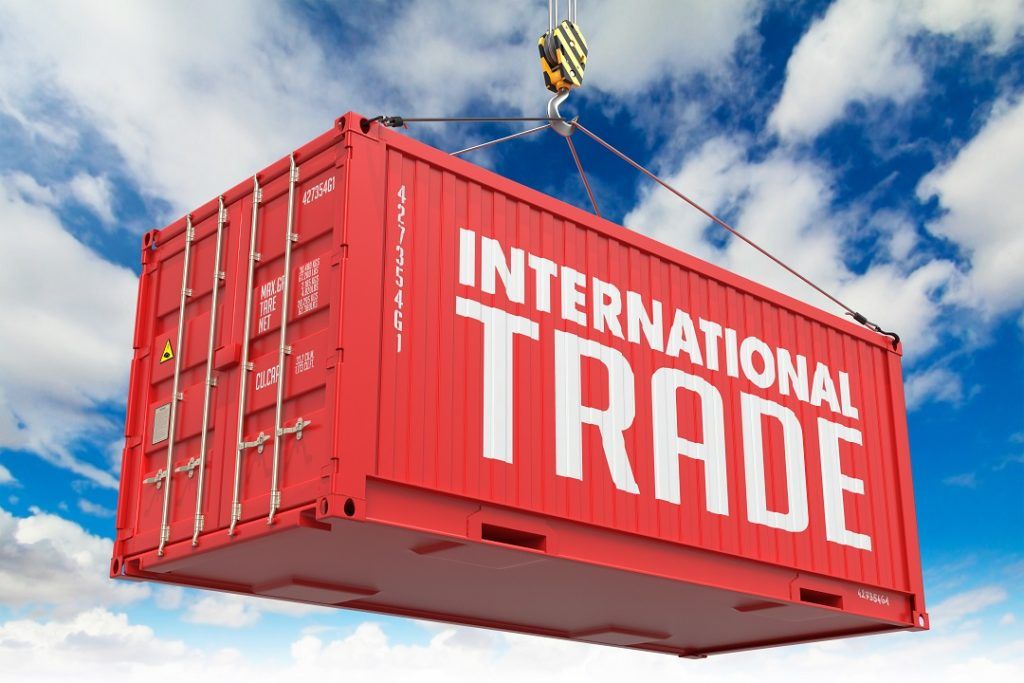In a globalized world, international trade serves as the lifeblood of economies across the globe, fostering economic growth, innovation, and connectivity. South Africa, with its rich natural resources and burgeoning manufacturing sector, stands poised to reap the immense benefits of strategic international trade.
Image: www.tandfonline.com
Understanding International Trade: A Cornerstone of Economic Prosperity
International trade, the exchange of goods and services between nations, plays a pivotal role in driving economic growth and prosperity. International trade allows countries to overcome geographical limitations and exploit their comparative advantages by specializing in producing and exporting products where they have the highest efficiency and lowest production costs. By importing goods that they cannot produce efficiently domestically, nations can access a broader range of products, foster competition, and stimulate innovation.
South Africa is endowed with an abundance of natural resources, including minerals, precious metals, and agricultural products. By leveraging its comparative advantage in these sectors, South Africa can boost its export revenue and strengthen its economic foundations. Additionally, international trade provides South Africa with access to diverse markets, reducing dependence on a single market or trading partner and enhancing economic resilience.
A Theoretical Framework for International Trade
Various economic theories provide a framework for understanding the mechanisms of international trade and its implications for South Africa. The Ricardian Model of Comparative Advantage, formulated by David Ricardo in the 19th century, suggests that countries should specialize in producing and exporting goods where they have the lowest opportunity cost. This specialization leads to increased efficiency and lower production costs, benefiting all participating nations.
The Heckscher-Ohlin Model, proposed by Eli Heckscher and Bertil Ohlin, extends the Ricardian framework by incorporating the concept of factor endowments. The model asserts that countries with abundant capital will tend to export capital-intensive goods, while countries with ample labor will specialize in labor-intensive exports. This theory highlights the importance of investing in human capital and infrastructure development to enhance South Africa’s competitiveness in international trade.
Exploring Real-World Applications of International Trade
Empirical evidence from developed nations illustrates the transformative potential of international trade. Export-oriented economies, such as Germany, Japan, and China, have consistently achieved higher rates of economic growth and innovation. International trade expands markets, promotes economies of scale, and encourages technological advancements, driving economic development and raising productivity.
For South Africa, international trade can serve as a catalyst for economic diversification and industrialization. By expanding export markets for manufactured goods, processed agricultural products, and services, South Africa can reduce dependency on primary commodity exports and foster the development of new industries. International trade can also facilitate the transfer of technology and skills, contributing to the growth of small and medium-sized enterprises (SMEs) and enhancing South Africa’s competitiveness in global markets.

Image: blog.stmarket.com.kh
Unleashing Opportunities for South Africa
Harnessing the full benefits of international trade requires strategic planning and a supportive policy environment. South Africa should adopt policies that incentivize exports, encourage investment in export-oriented industries, and reduce trade barriers. Additionally, investing in trade infrastructure, including transportation and logistics, will enhance connectivity with global markets and reduce trade costs.
South Africa’s participation in multilateral trade forums, such as the World Trade Organization (WTO), can provide a platform for promoting fair trade practices, negotiating favorable trade agreements, and settling trade disputes. Collaboration with regional trade blocs, such as the Southern African Development Community (SADC) and the African Continental Free Trade Area (AfCFTA), can further expand market access and foster economic integration on the African continent.
A Theoretical Analysis Of International Trade For South Africa
Conclusion: Seizing the Moment for South Africa’s Economic Growth
International trade presents South Africa with an unparalleled opportunity to accelerate economic growth, diversify its economy, and unlock its full potential. By embracing the principles of comparative advantage, understanding the theoretical underpinnings of international trade, and implementing strategic policies, South Africa can harness the power of trade to create wealth, generate employment, and improve the lives of its citizens. The time is ripe for South Africa to seize the moment and emerge as a leading player in the global trading arena.






